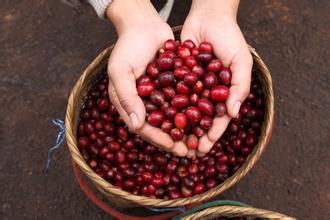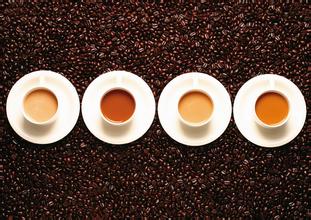Flavor description of Salvadoran Coffee beans introduction to the taste of varieties in the manor area
Flavor description of Salvadoran Coffee beans introduction to the taste of varieties in the manor area
El Salvador boutique coffee is concentrated in the volcanic rock producing areas of Santa Ana in the west and Charantanan fruit in the northwest. The top 10 cup tests in recent years almost all come from these two producing areas, with an elevation of about 9-1500 meters, mainly bourbon (68%). Followed by Pacas (29%), mixed-race Pacamara, Dulaai and Kaddura accounted for only 3% overall Salvadoran coffee inherits the mild quality of Sino-American coffee, which is soft, slightly sour and has a beautiful sweetness. At the same time, it also has its own characteristics: the aromatic taste is slightly sour and very soft; it is pure and has no miscellaneous flavor, and the taste balance is excellent; the smooth feeling like cream chocolate is impressive; the dense feeling of coffee in the mouth makes the coffee have a deep taste, and the long aftertaste coffee fields are mostly harvested mechanically to meet the economic benefits. When 75% of the coffee fruit in the coffee garden turns red, mechanical harvesting is started, followed by the same pre-washing operation, which is moved into the sink to remove floating beans, sift out the sunken beans, and then use a large pulp screening machine to dig out the pulp and remove the pods covered with pectin. The next stage is separate from the washing method: the sticky pods do not need to be moved into the tank to ferment, but to the outdoor bean drying farm. Because of the dry climate in Brazil, the sticky pectin on the pods will harden in about a day or so. Then use a large number of manpower to turn up and down, so that the pods dry evenly inside and outside, so as not to return to moisture and stink. For about two to three days, with the help of the natural forces of sunlight and dry climate, the pods can achieve a certain degree of dehydration. Then further dry with a dryer, the water content is reduced to 10.5%, and the pods are stored in a special container for about 10 days to further mature, in order to stabilize the quality, remove the sheepskin (pods) before export, remove the coffee beans, and pack them in grades.
Central American countries generally distinguish quality grades by altitude, such as Costa Rica, Guatemala, Mexico, Honduras and other countries. Similarly, El Salvador is graded by altitude. At high altitudes, due to the cold climate and slow coffee growth, the density of raw beans will be higher, the hardness will be stronger, the unique acidity of Arabica will be better, and of course the better the quality will be. Therefore, the higher the altitude of coffee growth, the better the flavor. On the contrary, the lower the altitude, the higher the temperature, the faster the growth rate, the lower the density, the lower the hardness of raw beans, and the poor quality of El Salvador coffee accounts for 40% of the country's exports. Picking time is usually in November, December and January-March of the following year. The export of raw beans lasts almost all year round. Coffee is produced in seven of the country's 14 provinces, with the largest number in the northwestern provinces of chalatenango and santa ana. El Salvador produces 100% Arabica coffee, 68% of which is bourbon, which usually grows at an altitude of 1062 Mel 1972 meters. On the other hand, El Salvador has a unique mountain, river and plateau, which provides a suitable environment for the growth of bourbon coffee. At the same time, El Salvador's suitable temperature, abundant precipitation and fertile soil are also indispensable natural conditions for breeding high-quality coffee beans. Like other typical island beans, Salvadoran coffee is balanced, soft and good in texture.

Important Notice :
前街咖啡 FrontStreet Coffee has moved to new addredd:
FrontStreet Coffee Address: 315,Donghua East Road,GuangZhou
Tel:020 38364473
- Prev

Introduction to the best drinking time and water temperature of Rosa coffee beans
The best drinking time of rose coffee beans water temperature introduction drinking coffee can prevent the attack of allergies. As a result of allergic parasympathetic nerve excitation caused by asthma or allergic rhinitis, if it can promote cultural nerve excitement, inhibit parasympathetic nerve, it will help to prevent its attack. Especially in patients with severe allergies, some mild inducements can cause physical discomfort, plus psychological confrontation.
- Next

Kilimanjaro ground Coffee Powder scale Flavor description Variety introduction of Manor
Kilimanjaro ground coffee powder scale flavor description manor variety introduction Tanzania's main coffee producing area is located at the foot of Mount Kilimanjaro, which is rich in volcanic soil, and some coffee trees planted here are more than 100 years old. the earliest coffee was first introduced by Christians from Kenya and coffee trees must be carefully taken care of, weeded and fertilized. And
Related
- Detailed explanation of Jadeite planting Land in Panamanian Jadeite Manor introduction to the grading system of Jadeite competitive bidding, Red bid, Green bid and Rose Summer
- Story of Coffee planting in Brenka region of Costa Rica Stonehenge Manor anaerobic heavy honey treatment of flavor mouth
- What's on the barrel of Blue Mountain Coffee beans?
- Can American coffee also pull flowers? How to use hot American style to pull out a good-looking pattern?
- Can you make a cold extract with coffee beans? What is the right proportion for cold-extracted coffee formula?
- Indonesian PWN Gold Mandrine Coffee Origin Features Flavor How to Chong? Mandolin coffee is American.
- A brief introduction to the flavor characteristics of Brazilian yellow bourbon coffee beans
- What is the effect of different water quality on the flavor of cold-extracted coffee? What kind of water is best for brewing coffee?
- Why do you think of Rose Summer whenever you mention Panamanian coffee?
- Introduction to the characteristics of authentic blue mountain coffee bean producing areas? What is the CIB Coffee Authority in Jamaica?

